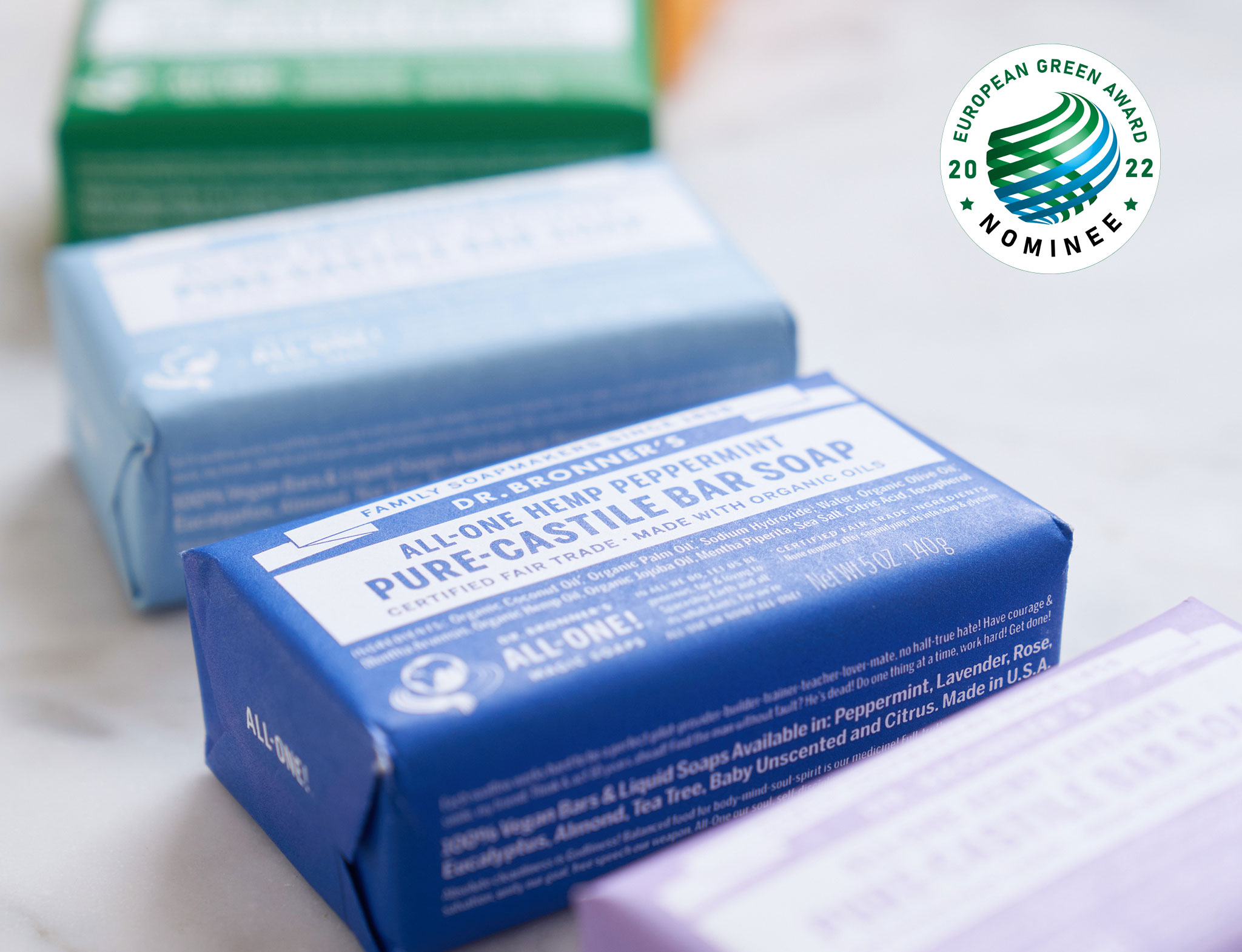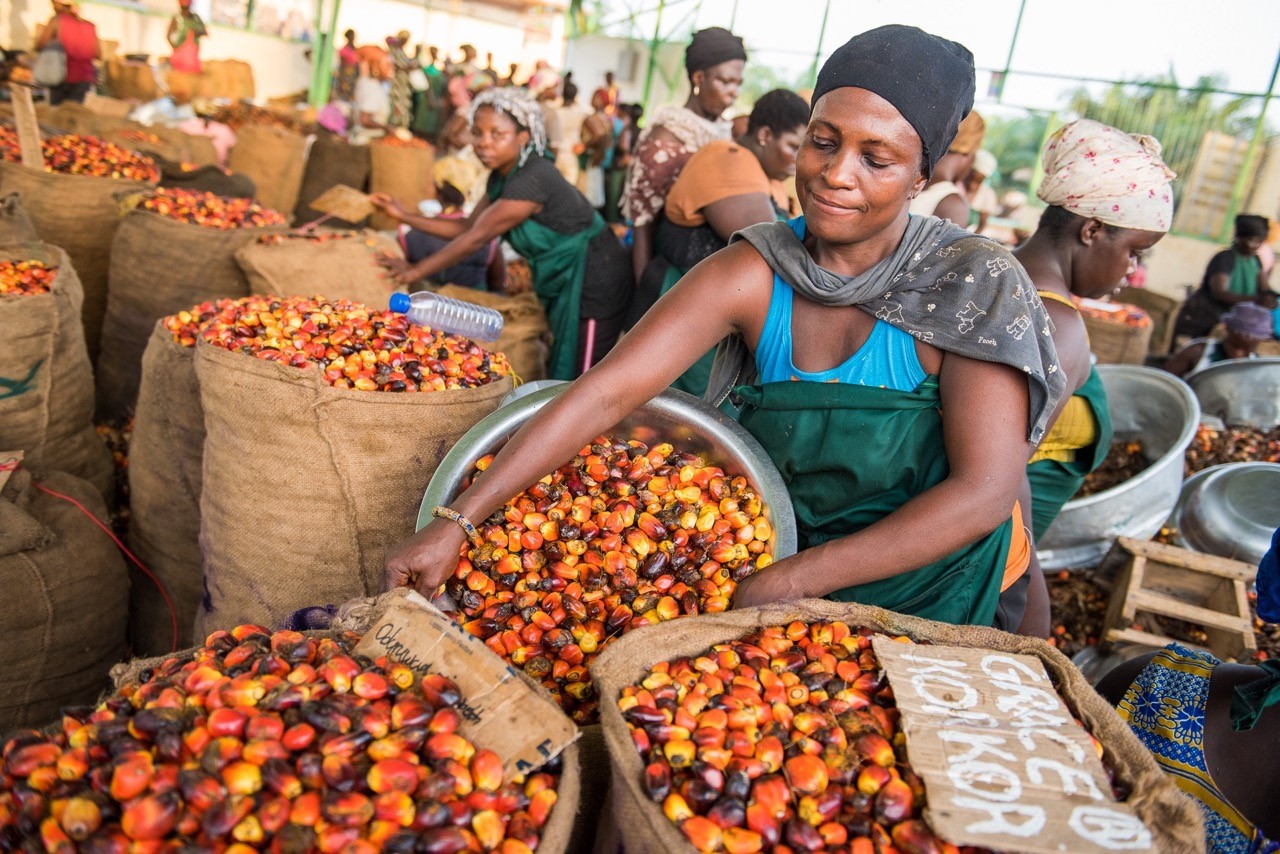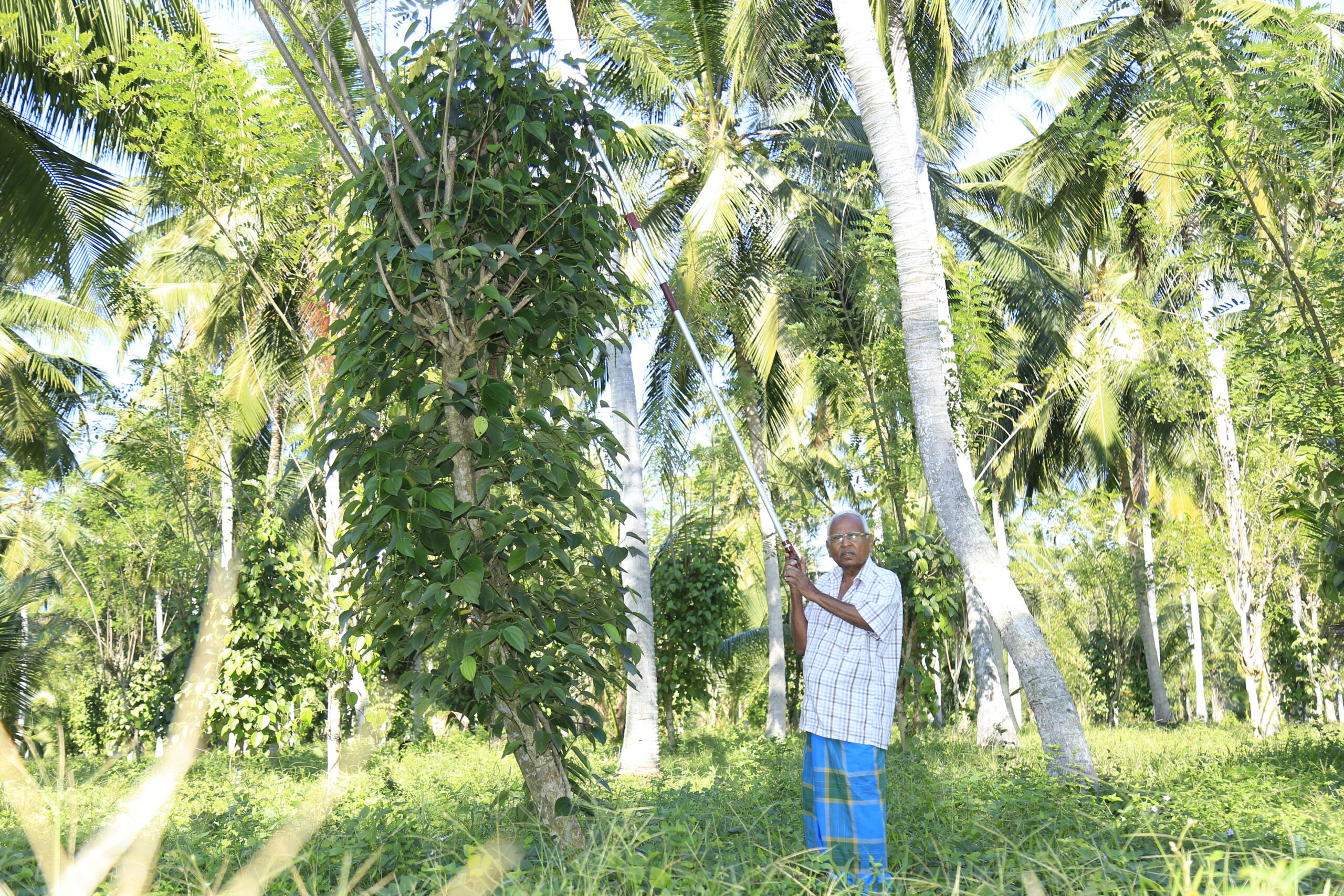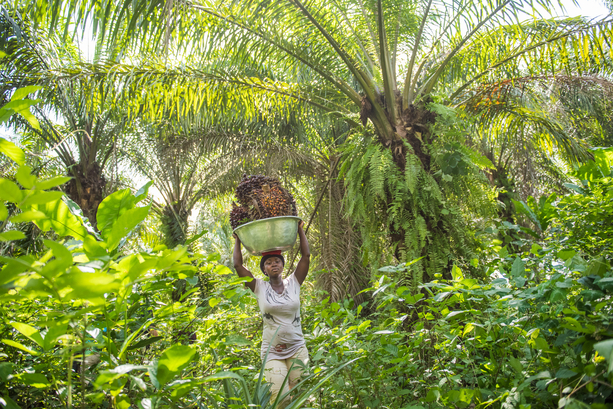Dr. Bronner’s
Fair trade and organic certified soaps & cosmetics.
At Dr. Bronner’s, we see our company as an engine to create positive change in the world, by implementing, funding and fighting for causes like regenerative organic agriculture, fair trade, social justice, animal welfare and peace on Spaceship Earth.
Gallery
General Description
Dr. Bronner’s, based in Vista and Laupheim, produces Fair Trade & organic certified soaps and cosmetics as well as their own raw materials. The company is committed to improving the world through responsible production and dedicated activism.
To create a transparently traceable supply chain, we source our key ingredients such as coconut, palm, olive and mint oils, from organic and Fair Trade certified sources. We’ve even founded three sister companies, Serendipol (Sri Lanka), Serendicoco (Samoa) and Serendipalm (Ghana), producing our own organic and Fair Trade palm and coconut oil.
At Dr. Bronner’s, we cap executive salaries at 5x that of our lowest paid position. This allows us to share profits with employees, pay their health insurance and contribute to child care.
Another share (~16 mio. in 2020) is donated to organizations and campaigns advocating for social change. Our giving focuses on our core causes: regenerative organic agriculture, human rights, and animal advocacy.
Sustainability Impact
In 2020, our B Impact Score was 178, 2nd highest of any company in the world. Why?
Dr. Bronner’s has committed to being climate positive by 2025 through measures within our own value chain. In particular, by expanding the cultivation of our raw materials according to principles of regenerative organic agriculture in order to promote soil health. Healthy, humus-rich soils act as carbon sinks and sequester excess CO2 from the atmosphere. Healthy soils are also more fertile, productive and resilient, securing the livelihoods of smallholder farmers and their families.
Our Fair Trade supply chain (Fair For Life certified) impacts the lives of more than 7,400 smallholder farmers plus their families. We spent a total amount of $1,122,923 on social projects in the local farming communities covering health, education, sanitation and other. In addition, we spent more than $100,000 on farmer training to prepare and accompany them on their journey to organic and regenerative organic certified cultivation.
Head of Project
Anke Buhl






